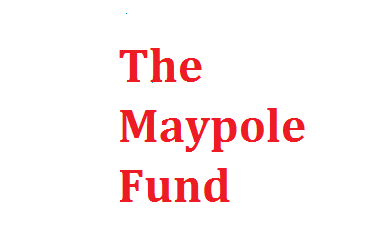- Six Reasons To Bring Millets To The Market!
- Hong Kong Court Makes Landmark Ruling Protecting Transgender Rights
- Substrate Promiscuity Of Fungi Generated Enzyme Laccase Shows Potential In Degrading Industrial Dye Effluents
- Union Minister Of Rural Development Holds A Meeting On ‘Cactus Plantation And Its Economic Usage’
- Ministry Of Tribal Affairs Organised One Day Mega Health Camp ‘Abua Bugin Hodmo-Our Better Health’ At Saraikela Kharsawan, Jharkhand
- Blue Flag Standards For Beaches In The Country
- India-Namibia Sign An MoU On Wildlife Conservation And Sustainable Biodiversity Utilization
- Hydrophobic Ingredients, In Combination With Obsolete Antibiotics, Can Counter Multidrug-Resistant Bacteria
- Promoting Cultivation Of Kala Namak Paddy
Measures to prevent cyber crimes against children
Posted by: 2022-07-20 05:43:01 ,By Admin

(i) the intermediaries to adopt a robust grievance redressal mechanism including time-bound disposal of grievances;
(ii) the Intermediaries to convey their terms and conditions which must include communication to users not to host, display, upload, modify, publish, transmit, update or share any information that is inter alia harmful, obscene, harm minors in any way or is otherwise unlawful;
(iii) significant social media intermediaries providing primarily messaging services to enable identification of the first originator of the information; and
(iv) significant Social media Intermediary (SSMI) to endeavour to deploy technology based measures to proactively identify child sexual abuse material.
To strengthen the mechanism to deal with cyber crimes including crimes against children in a comprehensive and coordinated manner, MeitY through a program, namely, Information Security Education & Awareness (ISEA), has been creating awareness among users highlighting the importance of following the ethics while using Internet and advising them not to share rumors/fake news. A dedicated website for information security awareness (https://www.infosecawareness.in) provides all the relevant awareness material.
Further, The Protection of Children from Sexual Offences (POCSO) Act, 2012 was amended in 2019 to make punishment more stringent. In the amendment the definition of child pornography has been included under Section 2(da). Section 14 of the Act was amended for more strict punishment for using child for pornographic purposes. Further Section 15 was also amended and more stringent punishment was introduced for storing or possessing of pornographic material involving child for transmitting or propagating or displaying or distributing in any manner at any time except for the purpose of reporting or for use as evidence in the Court.
The Protection of Children from Sexual Offences (POCSO) Rules, 2020 further stipulates that suitable material and information may be disseminated by the respective Governments in all public places such as panchayat bhavans, community centers, schools and colleges, bus terminals, railway stations, places of congregation, airports, taxi stands, cinema halls and such other prominent places and also be disseminated in suitable form in virtual spaces such as internet and social media.
The Ministry of Home Affairs is also implementing a scheme, namely Cyber Crime Prevention against women and Children (CCPWC) under Nirbhaya Fund with a total outlay of Rs. 223.19 crore. Under CCPWC, MHA has provided grant to States / UTs to set up cyber forensic cum training laboratories, hiring of Junior Cyber Consultant and training capacity building to provide hands-on training to Law Enforcement Agencies (LEAs) investigators, prosecutors and judicial officers. 28 States / UTs have set up Cyber Forensic Training Laboratory. More than 19000 Police personnel, Prosecutors, and Judicial officers have been trained.
Read more: Click Here
You may like similar news
.jpg)
Buying a dream home is all about ‘kismet connection’, says Bollywood actor Vidya Balan
After looking at ‘25 houses, we could not decide’ on buying one and so ‘we took on...
.jpg)
Viral video: Indian mom dries clothes on balcony of Atlantis, The Palm. Dubai hotel responds
Atlantis, The Palm responds to viral video of an Indian mom drying clothes on the hotel's balconyAn ...
.jpg)
The Bear Season 3 review: Ayo Edebiri directs the best episode of the best show on air right now By Santanu Das
Every second counts, as they say, in Season 3 of The Bear, which returns with compelling performance...

OTT releases this week: Slice-of-life Sharmajee Ki Beti, thrilling Civil War, and an emotional doc on Celine Dion
OTT releases this week: From Tahira Kashyap's directorial debut to a disruptive historical drama, ...
.jpg)
Taylor Swift chokes on a bug while performing All Too Well in London, requests fans to sing for her. Watch
A bug could not deter Taylor Swift from completing the chorus portions in the 10-minute version of A...









